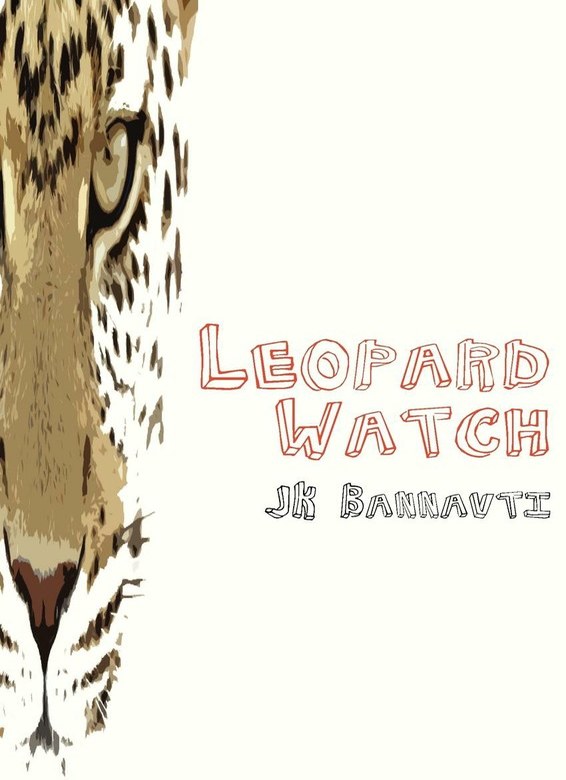written by J.K. Bannavti
(Kiléy Báh)
In beautifully constructed verse, JK Bannavti’s Leopard Watch tells the story of a Fon who out of greed and veiled impiety devastates the land over which he rules. The Fon, The King of Bamkov is in a perpetual state of slumber while an illusive beast drives terror into the heart of the kingdom, killing children as well as cattle. Neither the cries of the people nor pressure from the notables seems to have any effect on him. The population of the clan diminishes daily while the Fon sleeps, snores, and drools in the day, and growls, chews, and laps in the night. When finally the notables join the youth vigilante group to hunt down the beast, they come face to face with the devourer who narrowly escapes. A day later, one of the notables, Gwei, in a drunken state encounters and kills the leopard at night as he returns from the market. Amidst jubilation and in honor of Gwei the Fon collapses off his horse and dies. His carcass lies in the same state as that of the dead leopard.
| ISBN | 9789956579167 |
| Pages | 104 |
| Dimensions | 203 x 127 mm |
| Published | 2011 |
| Publisher | Langaa RPCIG, Cameroon |
| Format | Paperback |





2 comments
“Leopard Watch mirrors dictatorial regimes that do not only use physical might to oppress their subjects but engage in sinister ploys to annihilate their patrimony. [….] The question Bannavti seems to be asking is: where can chicks get protection when mother hen turns predator? The humiliating and revealing death of The King of Bamkov is a sound warning to leadership that feeds on its kind to establish supremacy. Bannavti’s use of concrete and vivid images in fine verse, projects the sleeping king as a dubious facilitator of a disappearing land. Yet in spite of its rather serious outlook, Leopard Watch develops a measured sprinkling of humor that enhances both structure and character.”
Dr. Emelda N. Samba, Theatre Lecturer, Department of Performing Arts & Archeology, University of Yaoundé 1
“As many of us try to understand the foundations of local art in our indigenous cultures, products like Leopard Watch help to bring parts of our cultural history to life while attempting to explore legends that would otherwise disappear. The play seems to question the source of the destruction that our societies are facing. It also seems to suggest that leadership should own up to the damage it has inflicted on society.”
Shey Stephen Shemlon (PhD), Somerset, New Jersey, USA